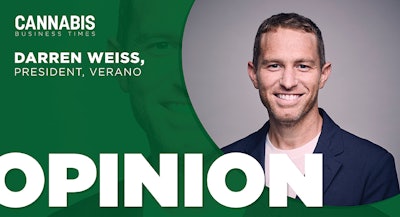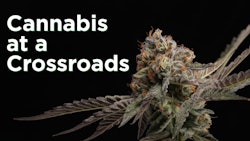
Imagine some intrepid explorer discovered deep in the jungles of a far-off clime a plant which, when applied to the skin, ingested or inhaled, had the ability to bring quality of life to cancer patients facing lethal diagnoses, prevented children and adults from experiencing debilitating and often life-threatening epileptic seizures, and substantially reduced neuropathic and other intractable pain. Imagine that this plant, when made available, greatly reduced opiate drug use, the number of drug overdose deaths, and even decreased the cost of health insurance for users and non-users alike. And imagine further, that the active ingredient in that plant had a safety profile such that it was impossible to ingest a lethal amount and was less addictive than alcohol, tobacco and opiates, and even caffeine. Were such a plant to be introduced in today’s world, it would generate a frenzy, putting the kale and acai “superfood” fads to shame: researchers would flock to discover its full potential, pharmaceutical companies would commit resources to drug development, entrepreneurs would create businesses seeking to capitalize on the plant’s potential, and investors would willingly throw substantial capital into exploiting the plant’s properties.
This thought experiment is hypothetical only in its chronology. The attributes described above belong to cannabis, a plant cultivated and used throughout the world for thousands of years. Despite its wide use as a pharmaceutical throughout history—even in the United States—beginning in 1937 the federal government launched a political campaign against cannabis, culminating in the enactment of the Controlled Substances Act, or CSA, in 1970. The CSA, which classifies substances in a series of “schedules,” identified cannabis as a Schedule I substance. The most restrictive schedule is a pronouncement that cannabis has no accepted medical use and a high potential for abuse.
The war on cannabis was, according to reporting from Harper’s magazine and interviews with former policy advisers, a documented and coordinated effort to marginalize counterculture and minority communities which, in the tumultuous days of the ’60s and ’70s, were undermining Richard Nixon’s efforts in the U.S. and Vietnam. The result of cannabis’s inclusion in Schedule I of the CSA was the mass incarceration of hundreds of thousands of individuals, most of them minorities, and the near complete cessation of research into a plant that had brought relief to millions for millennia. In a modern world driven by advances in technology and the relentless pursuit of scientific breakthroughs, cannabis was suddenly a dead end: its users were jailed, its proponents were ostracized, and those best positioned to further the science were abruptly and indefinitely barred from any such pursuits.
But in a nod to American ingenuity and a freedom-loving ethos, citizens began taking matters into their own hands. Beginning in earnest in the mid-1990s, through a series of ballot initiatives, slow and hard-fought legislative victories and grassroots efforts, states began enacting medical cannabis programs. In the spirit of what Supreme Court Justice Louis Brandeis once called states’ ability to serve as laboratories of democracy, a state-centered movement developed into a patchwork of legal and regulatory frameworks permitting the cultivation, distribution, and sale of cannabis and cannabis-infused products for both medical and “adult use.”
Despite the fact that today’s legal cannabis industry employs nearly half a million individuals, generates billions in state tax revenue, and delivers billions of dollars in economic impact across the country, the federal government has, until recently, failed and refused to substantively engage on the topic of cannabis. Refusing to permit widespread research on the plant or acknowledge scientific studies from beyond our borders, the federal government’s failure to act has created a dizzying array of contradictions stemming from cannabis’s status as both legal and illegal, permissible and verboten. Its users are faced with a near Hobbesian choice of whether to support their own health while risking a host of draconian penalties, including federal prosecution.
Recently, the Secretary of the Department of Health and Human Services did something almost unimaginable: for the first time in history, Xavier Becerra directed his department to recommend to the Drug Enforcement Administration that the insanity surrounding federal cannabis policy come to an end. Based on its own research and analysis, HHS recommended that cannabis be re-scheduled to Schedule III of the CSA, a category defined as having a low abuse potential, accepted medical use, and a low potential for psychological dependence. This recommendation is nothing short of groundbreaking, particularly given the storied nature of cannabis in the United States.
READ MORE: CBT’s Cannabis Rescheduling Coverage
But the sudden shift in policy is also deeply troubling—not for its substance, but for the time in which it took bureaucrats and politicians to make this move. Without any real changes in the science or scientific breakthroughs in cannabis medicine (THC, the most famous active ingredient in cannabis, was synthesized and received FDA approval in the form of dronabinol in 1985), the sudden acknowledgment of what those of us in the cannabis industry have understood from the outset is both welcome and maddening. What about the hundreds of thousands who have been imprisoned under misguided policies and the generational damage resulting from those policies? What about the untold tens of thousands who have faced life-threatening illnesses who did not have access to a plant known to increase quality of life? What about the children debilitated by epilepsy, the patients left to suffer with chronic pain, the opioid addicts and former opioid addicts? HHS’s recognition is an event to be celebrated, but the trajectory of U.S. policy deserves to be mourned.
As a business leader in legalized cannabis, its illegality under federal law has required Verano to operate our business with both hands tied behind our proverbial back. Despite the fact that we employ more than 3,700 people across 13 U.S. states and generate nearly $1 billion of revenue annually, we are still treated like criminals. We don’t have access to traditional banking services; we are subject to onerous tax rules applicable to heroin dealers, resulting in our owing more than $100 million in excess tax to the IRS in the last year alone; we are unable to access U.S. equity markets or traditional debt financing; we can’t cross state lines, can’t advertise in traditional channels, can’t use credit cards, can’t access traditional insurance markets, can’t fund or conduct peer-reviewed research in the U.S. The list goes on. Though these business impediments pale in comparison to the pain, disruption, and death caused or facilitated by outdated cannabis policy in this country, this great American industry—our country’s fastest growing—has been unable to reach its full potential.
This insanity must end. HHS’s recommendation is a long-overdue first step. The DEA must now indicate its agreement or disagreement on the recommendation (note: it has never disagreed) and promulgate rules. If those rules follow the science, permit further research and development, and allow the vibrant legal cannabis industry to remove its handcuffs, the positive impacts on our society and health will be vast.
The tide is finally turning at long last. And it’s about damn time.
Darren Weiss is President of Verano, a Chicago-based multi-state cannabis company that operates 14 cultivation facilities and 132 Zen Leaf and MÜV cannabis dispensaries in 13 U.S. states.

























